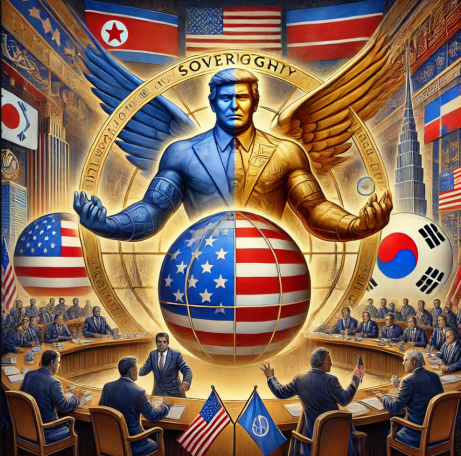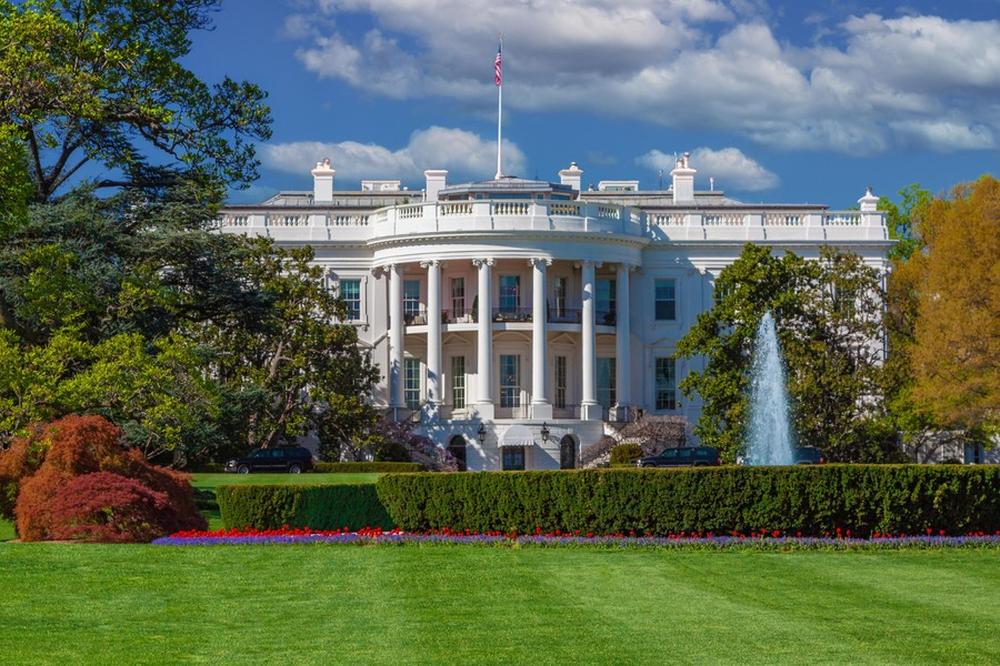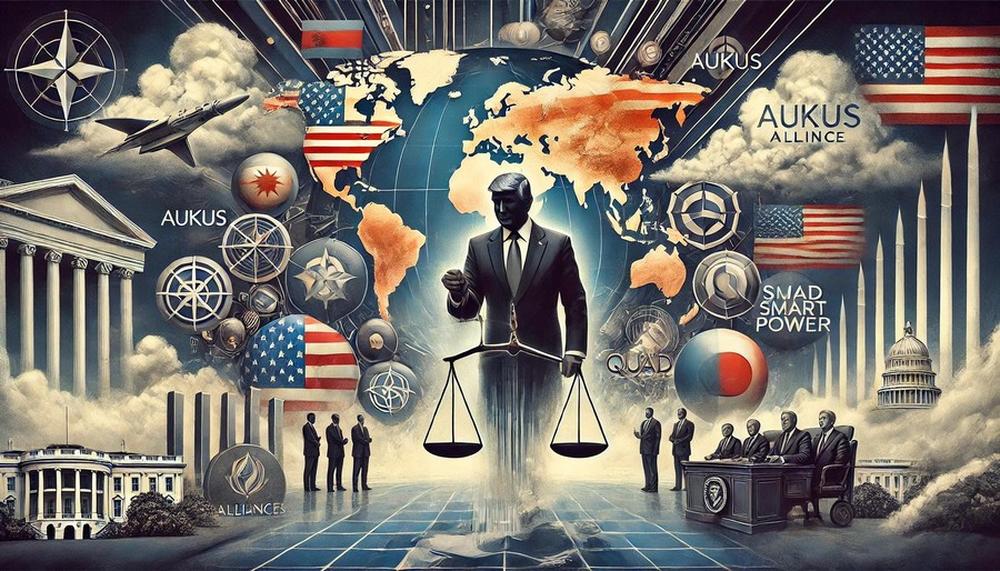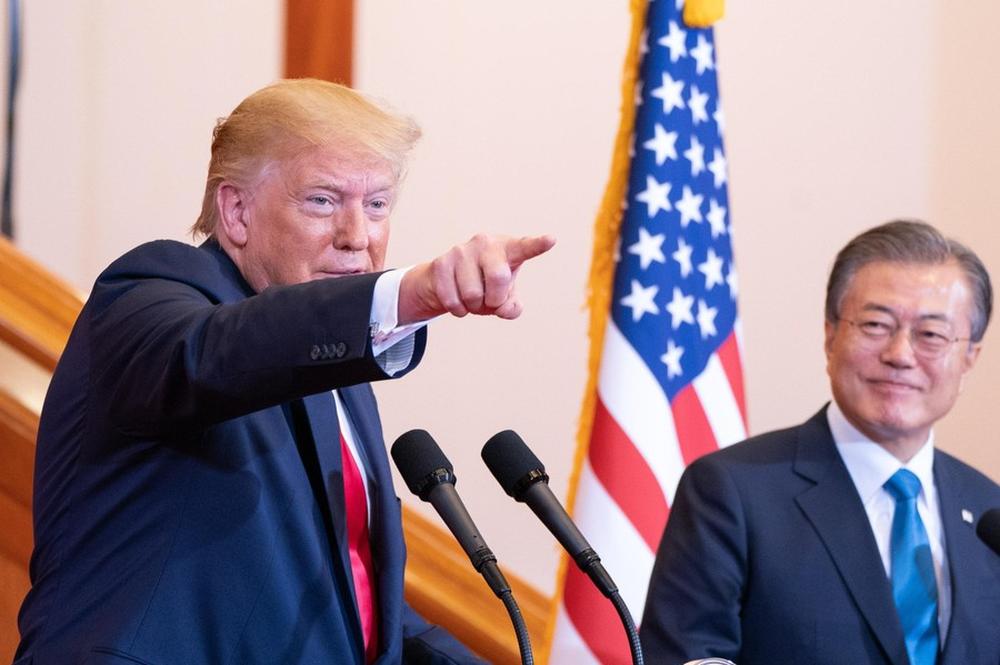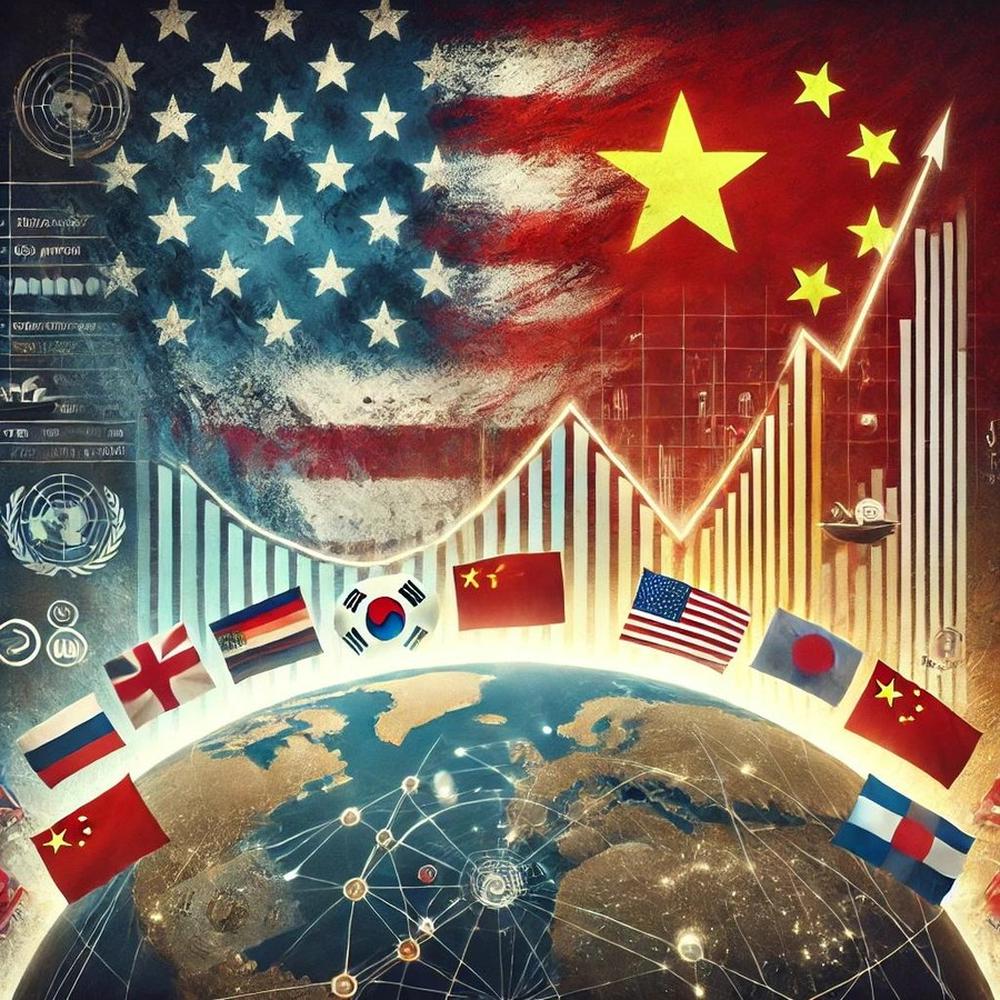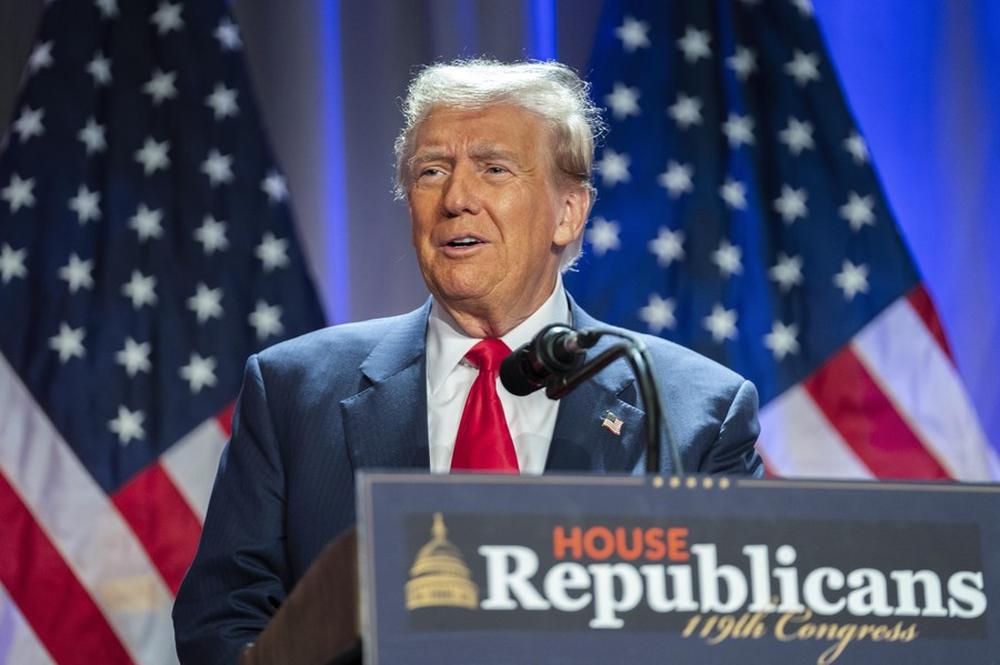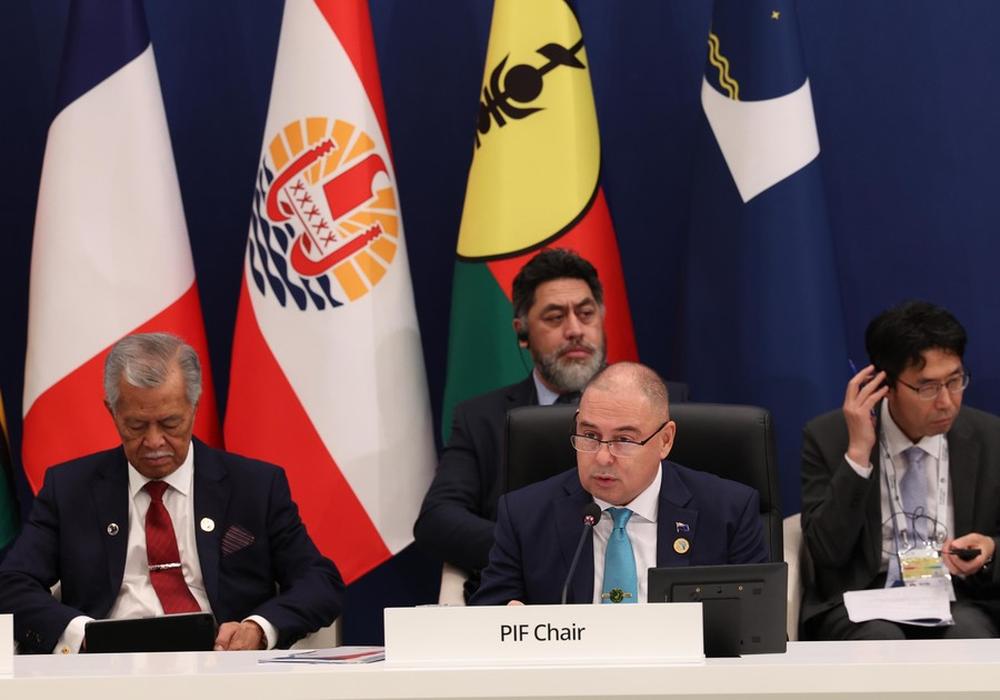
- #Europe
- #Global Issues
- #Security & Defense
- #US Foreign Policy

▶️The election of Donald Trump in November 2024 has intensified debates about the Russia-Ukraine war, with Trump advocating for swift negotiations that could involve significant territorial concessions by Ukraine while raising concerns about the implications for NATO and global security.
▶️South Korea faces strategic challenges as it balances its alliance with the U.S., cautious consideration of military aid to Ukraine, and regional security threats, particularly North Korea’s involvement in supporting Russia with troops and weaponry.
▶️Adopting a "wait-and-watch" strategy, South Korea aims to align its policies with Western allies like NATO and the U.S., emphasizing the importance of measured responses to avoid escalating tensions or acting prematurely in the volatile geopolitical landscape.
The recent election of Donald Trump as the next U.S. president in November 2024 has reignited global debates about the future trajectory of the Russia-Ukraine war. Trump’s campaign promises of swiftly ending the conflict have stirred hope among war-weary populations while raising concerns about the potential implications for Ukraine, NATO, and global security.
In the months leading up to the election, the conflict saw significant escalations, including Ukraine's loss of over 40% of the Kursk region it had seized during a surprise offensive in August 2024. By late November, Russian forces continued to advance in critical areas, such as the Donetsk region, while Ukraine intensified its countermeasures, utilizing U.S.-supplied ATACMS and British Storm Shadow missiles to target Russian logistics deep inside its territory. Adding to the complexities, approximately 11,000 North Korean troops reportedly joined Russian efforts in late 2024, amplifying the geopolitical stakes. Meanwhile, Ukraine’s requests for advanced air defense systems highlight its urgent need to protect cities from intensified Russian missile and drone attacks, further illustrating the evolving and interconnected nature of the conflict. For South Korea, these shifting dynamics present both challenges and opportunities as it navigates its response to the evolving geopolitical landscape.
Trump’s Approach to the Ukraine War
Donald Trump’s victory has marked a turning point in U.S. foreign policy. His repeated assertions that he could end the Ukraine war within 24 hours of assuming office signal a departure from the Biden administration’s steadfast military and financial support for Ukraine. Trump’s rhetoric emphasizes negotiations, suggesting a potential settlement that could involve significant territorial concessions by Ukraine to Russia. While Trump has not outlined specific strategies, his campaign’s narrative includes reducing U.S. involvement in what he has termed “a distant European conflict” and prioritizing domestic issues.
This stance aligns with sentiments of war fatigue within the U.S. and parts of Europe, where prolonged support for Ukraine has strained budgets and political unity. However, critics argue that Trump’s proposed settlements might embolden Russia, leading to a “frozen conflict” similar to other unresolved disputes in the post-Soviet space. Such an outcome could undermine Ukraine’s sovereignty, weaken NATO’s credibility, and embolden authoritarian regimes worldwide.
Global Implications of Trump’s Policies
Trump’s approach to Ukraine carries significant global ramifications. His potential withdrawal of military aid would leave Ukraine heavily reliant on European NATO members, who may struggle to fill the gap. This scenario could also force Ukraine into an unfavorable peace deal, ceding territories such as Donetsk, Luhansk, and Crimea to Russia. Furthermore, it could pave the way for an emboldened Russia to continue its revisionist agenda, destabilizing neighboring regions.
Simultaneously, the conflict’s dynamics have drawn in other global players. China and North Korea have supported Russia, with North Korea reportedly dispatching troops and artillery to aid Moscow. Conversely, U.S. allies such as South Korea and Japan have contributed non-lethal aid to Ukraine, highlighting the war’s ripple effects across the Indo-Pacific. These developments underscore the war’s transformation into a broader proxy conflict involving multiple global powers.
South Korea’s Position and Strategic Dilemmas
For South Korea, Trump’s election adds complexity to its evolving role in the Ukraine crisis. South Korea has traditionally aligned with U.S.-led efforts while balancing its regional security priorities. Under President Yoon Suk-yeol, South Korea has provided humanitarian aid and non-lethal support to Ukraine, such as mine-clearing equipment and body armor. However, calls for more direct military aid have intensified, particularly in response to North Korea’s involvement in the conflict.
Ukrainian Defense Minister Rustem Umerov’s recent visit to South Korea on November 27 underscores Ukraine’s urgency in securing advanced weaponry. The delegation presented a detailed list of requested items, including air defense radars, missile interceptors, and artillery shells. They also shared intelligence on North Korean troop deployments to bolster their case for South Korean support.
In response, President Yoon has signaled openness to considering military aid, starting with defensive weapons. However, South Korea’s approach remains cautious, influenced by Trump’s peace-oriented rhetoric and the potential risks of escalating tensions with Russia. Officials acknowledge the need to balance humanitarian principles with pragmatic concerns, including the possibility that South Korean aid could be perceived as prolonging the war or conflicting with U.S. diplomatic goals.
The "Trump Dilemma"
South Korea’s hesitation also reflects the uncertainties surrounding Trump’s policies. Trump’s administration may view South Korean military aid as counterproductive to its negotiation strategy, potentially straining the alliance. Moreover, the transitional period between the Biden and Trump administrations complicates decision-making, as South Korea must align its policies with shifting U.S. priorities. Some analysts argue that South Korean aid could strengthen Trump’s position by pressuring Russia during negotiations. However, others caution that unilateral moves could provoke Russian retaliation or exacerbate tensions in the already volatile region.
Broader Implications for South Korea
South Korea’s response to the Ukraine conflict also has implications for its regional security and global standing. The war serves as a stark reminder of the interconnectedness of global security, with President Yoon warning that “Ukraine today may be East Asia tomorrow.” North Korea’s military alignment with Russia further heightens the stakes, as it could embolden Pyongyang’s provocations and deepen security challenges on the Korean Peninsula.
Additionally, South Korea’s stance on Ukraine reflects its aspirations to play a more active role in global governance. As a non-permanent member of the UN Security Council, South Korea’s decisions carry symbolic weight, demonstrating its commitment to upholding international norms and countering aggression. However, these aspirations must be balanced against the practical realities of its security environment and alliance dynamics.
Conclusion
The prospect of the Ukraine war following Trump’s election presents significant challenges and choices for South Korea. Trump’s emphasis on a swift resolution could reshape the conflict’s trajectory, compelling allies like South Korea to adapt their strategies. For South Korea, the path forward involves navigating a delicate balance between supporting Ukraine’s sovereignty, aligning with U.S. policies, and safeguarding its regional security interests.
Given the uncertainty surrounding the specifics of Trump’s policies, South Korea should adopt a “wait-and-watch” approach, carefully monitoring developments before making any significant commitments. Prematurely providing offensive weapons, especially ahead of U.S. or NATO actions, could create unnecessary diplomatic risks or escalate tensions. Instead, it is crucial for South Korea to align closely with Western partners, including the United States and NATO, ensuring a coordinated and consistent response that upholds shared international norms while minimizing strategic vulnerabilities.
As the geopolitical landscape evolves, South Korea’s measured approach will be crucial in ensuring that its actions contribute to a just and sustainable resolution of the Ukraine conflict while reinforcing its role as a responsible global actor. By carefully weighing its options and aligning with international efforts, South Korea can help shape a future where peace and stability prevail over aggression and authoritarianism.

Hyun Jin Choi is an associate professor in the department of political science at Kyung Hee University, Seoul. He previously worked as a postdoctoral researcher at the ACLED team under the supervision of Prof. Clionadh Raleigh. Hyun Jin’s research interests fall within the field of civil war, political violence, and international development cooperation. His articles have been published in numerous refereed journals, including Global Environmental Change; International Studies Quarterly; Democratization, Comparative Politics; Research and Politics, and Journal of Conflict Resolution. He holds a PhD in Political Science from Michigan State University and an MA in International Relations from the Fletcher School of Law and Diplomacy.
